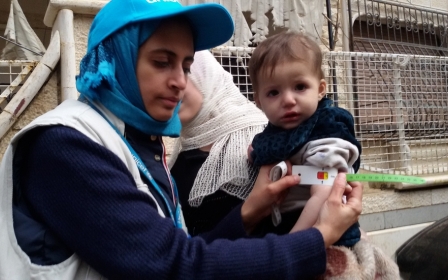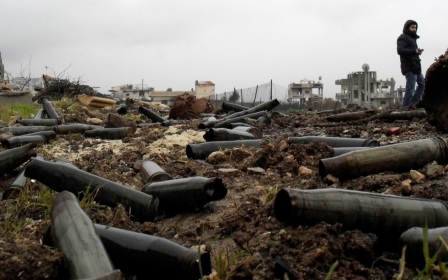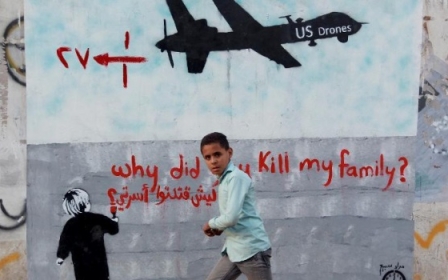Syrian Kurds leave Geneva after being rejected by peace negotiators

Syrian Kurdish leaders hoping to take part in fragile UN-brokered peace talks in Geneva have left the Swiss city after not receiving invitations to negotiations, sources told AFP on Saturday.
Saleh Muslim, head of the powerful Syrian Kurdish Democratic Union party (PYD), travelled to Geneva last week in the hopes his movement would have a seat at the table. But he and his advisers left Geneva late on Friday, a member of his party's team in Switzerland said.
"Yes, we left Geneva because we did not get invitations," the member said, speaking anonymously because he was not authorised to speak to the press.
"We will not commit to any decision that comes out of Geneva, including a ceasefire agreement," he said.
Ilham Ahmad, the Kurdish co-head of an Arab-Kurdish joint council in Syria, told AFP she had also left the Swiss city on Friday night after not being invited to talks.
The participation of Kurdish parties has been one of the sharpest points of contention among warring parties in Syria and their respective backers. Kurdish groups like the PYD and their armed wing, the People's Protection Units, insist that their participation is key to the success of any political process aimed at ending the nearly five-year war rocking Syria.
The PYD has been one of the most successful fighting forces against the Islamic State (IS) group, clearing the group out of swathes of territory in northern Syria.
"Without us, this process will have the same fate as the last round of Geneva talks" in 2014, the PYD source told AFP.
Russia, which has helped President Bashar al-Assad's forces regain territory since starting air strikes in late September, also says that the Kurds must take part in any talks.
The mainstream Syrian opposition body the High Negotiations Committee (HNC) - and its Turkish and Saudi backers - have strongly objected to the PYD's participation.
Opposition group bound for Geneva
Part of the HNC's own delegation to UN-administered talks, which includes at least one Kurdish member, arrived in Geneva late on Saturday.
The HNC said it would send "about 30, 35 people" to the Geneva talks, which started on Friday with only Syrian government representatives in attendance.
On Wednesday night, Riad Hijab, head of the HNC, had indicated that the delegation would not attend the talks until an agreement was reached to allow aid to enter Syrian towns where at least a million people are under siege.
UN Resolution 2254, adopted by the UN Security Council in 2014, gives international aid agencies the right to access besieged areas in Syria without permission of the Syrian government, and the delegation has been asking for the international community to implement the resolution before any talks begin.
Late on Thursday, Asaad al-Zoabi, head of the HNC delegation, told Sky News Arabia that the opposition had received the guarantees it sought for an end to bombardment of civilians and aid access to besieged areas. Those guarantees came from the US and Saudi Arabia, Zoabi said.
US Secretary of State John Kerry on Friday said his country "welcomes the important decision" by the HNC.
"The United States also reiterates that UN Security Council Resolution 2254 must be fully implemented by all parties to the talks, including with regard to the urgent need for humanitarian access for besieged areas of Syria," he said.
The Saudi foreign ministry said it welcomed the committee's decision "to take part in the Geneva negotiations to implement UN Security Council resolution 2254". In a post on Twitter, however, the HNC said it would not be taking part in actual peace negotiations in the Swiss city.
Stay informed with MEE's newsletters
Sign up to get the latest alerts, insights and analysis, starting with Turkey Unpacked
Middle East Eye delivers independent and unrivalled coverage and analysis of the Middle East, North Africa and beyond. To learn more about republishing this content and the associated fees, please fill out this form. More about MEE can be found here.




